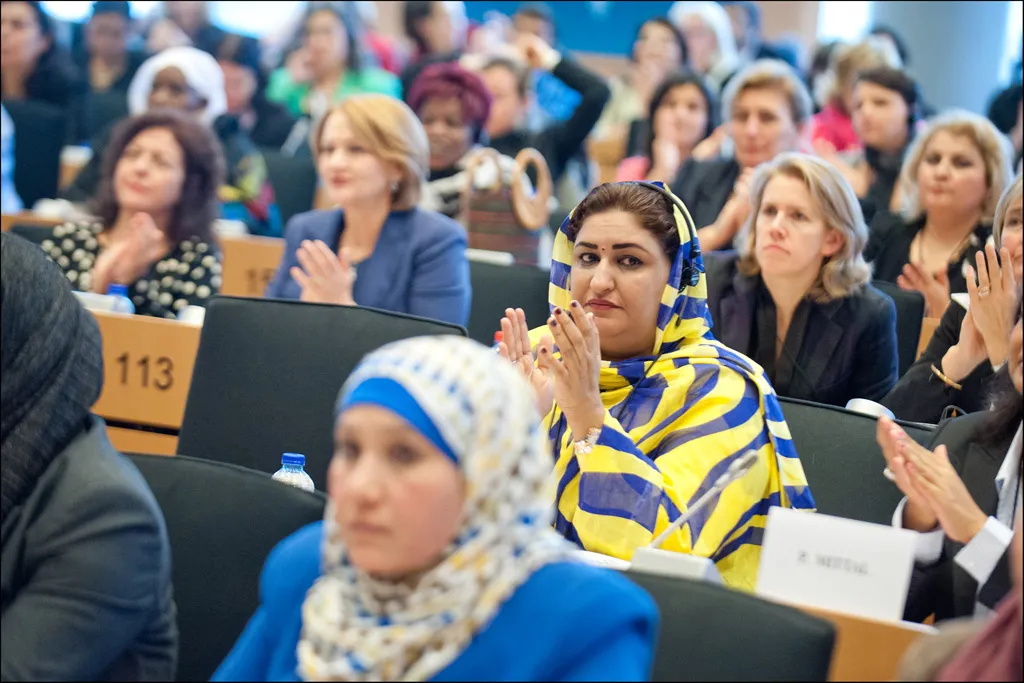The role of parliaments in advancing gender equality

Parliaments play a crucial role in advancing gender equality, and women in parliaments are known to be the “main drivers of change in terms of gender equality in parliament” (IPU). Representation of social diversity, holding the executive to account, drafting relevant and adequate legislation, and drawing attention to specific issues, are all important functions that parliaments perform and are vital in achieving gender equality.
Disclaimer: Views expressed in this commentary are those of the authors. This commentary is independent of specific national or political interests. Views expressed do not necessarily represent the institutional position of International IDEA, its Board of Advisers or its Council of Member States.
Women represent only 24.9 per cent of Members of Parliament worldwide, which not only makes change more difficult but implies that laws, budgets, and policies are not as effective and can produce discriminatory outcomes. Gender inequality in politics correlate with broader gender inequalities in society. Therefore, improving women’s representation and leadership in parliaments is closely intertwined with supporting parliaments’ role -through their legislative, budgetary, oversight and representation functions -to make societies more inclusive and equal.
The EU-funded parliamentary strengthening project INTER PARES | Parliaments in Partnership works through peer-to-peer partnerships between European Union Member State Parliaments and Partner Parliaments from all over the world. A number of partner Parliaments from different regions and cultures have expressed their intention to work towards gender equality and women’s empowerment.
The INTER PARES project started its work in this area by convening a workshop on gender strategies for parliamentary development programmes on 15 October 2019. During the workshop, parliaments from different parts of the world shared their efforts and strategies to promote gender equality.
Creating the conditions for women’s leadership, combatting violence against women in politics, especially online violence, are some of the dimensions that need to be addressed. To tackle these challenges, the INTER PARES project put together a strategy that aims to firstly, mainstream gender through its programming and activities, ensuring all activities are gender-inclusive and responsive, and secondly, focus on specific initiatives to support gender-sensitive parliaments and the equal participation of women in all aspects of parliamentary work.
Analysing the actual impact of laws and budgets through gender-sensitive scrutiny is an important step that parliaments can take in becoming more gender-sensitive. Sharing experiences on how to overcome these barriers is a main component of INTER PARES project, through its peer-to-peer activities between Partner Parliaments and European Union Member State Parliaments, through knowledge sharing and interparliamentary cooperation at a global level, and through the production of knowledge and research.
Currently, amidst a pandemic and an economic crisis that has exacerbated structural inequalities, the opportunity to ensure a gender-responsive recovery is at hand. Parliaments can and should play a significant role in that effort.




